GGI Crash Course
Timeline of Quebec Student Conflict
A lot has happened since our last print issue.
We had not yet enjoyed our nightly delicacy of one shot pepper spray, two parts baton. We still thought 40,000 was a lot of people at a protest and cried ‘overworked!’ after two consecutive marches.
And while we’re not the guerrilla fighters Macleans wishes we were, we’re pretty sure after a quick look at Paris ’68 we’d decide it was too quiet a riot to waste our energy on.
Whether you’ve got several dented pots in your kitchen or you still don’t really know what #ggi stands for, it can be difficult to keep track of it all.
Luckily for you, we’ve put together a timeline detailing ghost of grèves past to provide the confidence you need to drop some serious strike knowledge when your aunt goes off about those “whining students” at the next family dinner.
March 20: Liberal budget drops without any revisions to proposed tuition increase of $325 a year for five years. Concordia Student Union holds a Special General Assembly to vote on continuing it’s strike mandate and revisiting the minimum agreement, but fails to meet quorum. The CSU is no longer on strike, however executives encourage departmental mobilization, and continue to advocate a pro-strike, anti-hike stance.
March 22: Province-wide day of action sees upwards of 200,000 people march peacefully through downtown Montreal, paralyzing upwards of 50 city blocks for several hours throughout the afternoon. Despite record numbers, there were no reported arrests or injuries.
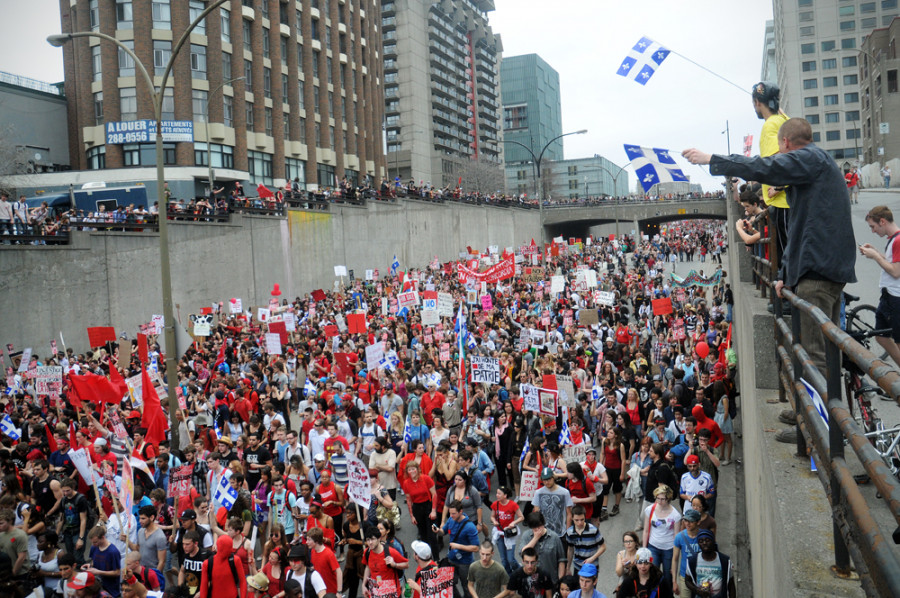
March 23: Amidst an influx of security and heightened tensions at Concordia, a hired security agent assaults a student demonstrating outside a Geography classroom. Approximately one week later, the agent in question, hired by the university from security agency Maximum, is found to not possess a valid security permit.
April 12: Protesters block access to the Hall Building and delay the first day of exams. Hard picket lines are formed outside the building, as well as in the tunnels that connect to the library. Violent clashes between students erupt, and riot police are called in. There are reports of CS gas use and excessive force by the SPVM.
April 19: Education Minister Line Beauchamp calls student leaders to the negotiation table after increasing violence and classroom disruptions continue in Montreal. Beauchamp banishes CLASSE from negotiations unless it publicly denounces violence. Other student groups condemn this decision.
April 20: Concordia Senate unanimously votes to request that Jean Charest start an unconditional dialogue with student groups. Concordia University interim President Frederick Lowy is requested to deliver that message.
April 24: A small group of protestors disrupt a meeting with then presidential candidate Alan Shepard, cancelling the meeting. Protestors vow to continue to disrupt the university’s stance of “business as usual.” Shepard is later approved as president on May 4, and is set to take office and begin his five-year term on August 1, 2012.
April 27: Charest and Beauchamp announce an alternative to the original tuition increase at a press conference. The new offer would see a total tuition increase of $1778 over seven years, as opposed to the original $1625 over five years.
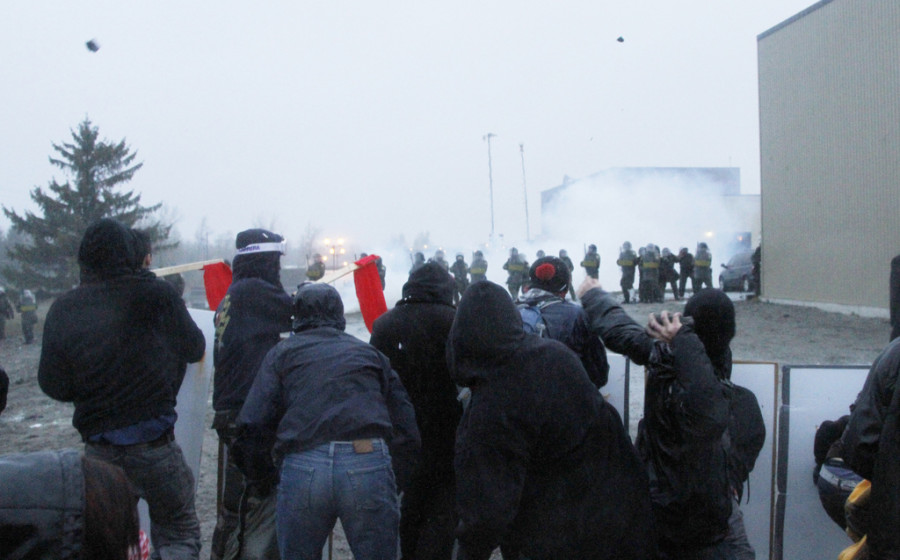
Additional money is also allotted towards loans and bursaries. Student groups ultimately reject the offer, claiming it to be insulting and ignorant of their demands.
May 4: Riots outside of the Quebec Liberal Party meetings in Victoriaville, QC see some of the most violent clashes between protestors and the police. The protest lasts for two days.
The Sûreté du Québec stops several buses of students from Montreal, including two from Concordia and McGill, on their way out of Victoriaville. The buses are instructed to return to Victoriaville, where students are processed and detained overnight.
May 14: Fourteen weeks into the student strike Line Beauchamp resigns from her position as Education Minister, and relinquishes her seat at the Quebec National Assembly, saying that she “no longer felt part of the solution.” Hours later former Education Minister Michelle Courchesne is appointed to take her place.
Amnesty International calls for an inquiry into the Victoriaville protests citing the number of people injured, the use of CS gas, and the high number of arrests.
May 17: The Charest government introduces emergency legislation Bill 78, directed at putting an end to increasing violence and continued demonstrations in Montreal. The bill puts a ban on masks at demonstrations, as well as new restrictions on the number of people, the route, and schedule of a protest.
The new legislation also suspends the academic year for a number of CEGEP’s and university faculties still on strike.
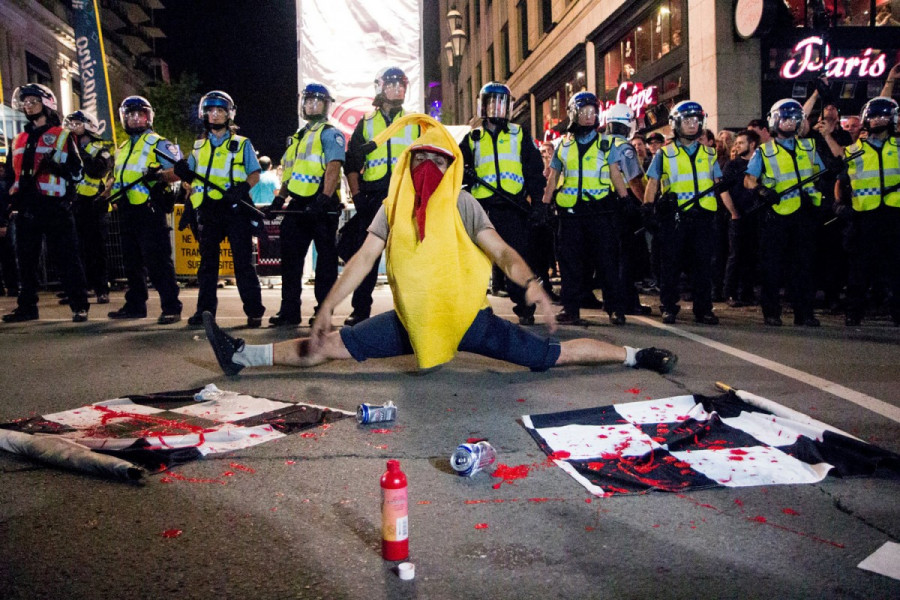
Despite being heavily opposed by all major student associations and various groups including the Quebec Bar Association, Bill 78 is passed by the National Assembly on May 19, sparking a period of intensified backlash and nightly demonstrations throughout the province.
In many ways, Bill 78 changes the entire spectrum of unrest in Quebec, galvanizing the student movement while bringing together a myriad of social groups to fight against an increasingly erratic government and it’s controversial new laws.
May 22: Second massive day of action sees tens of thousands of people take to the streets of Montreal in protest of tuition increases and the new laws. The day marks the 100th official day of student protest in Quebec.
After deviating from the planned route, the day of action was dubbed the biggest act of civil disobedience in Canadian history, in light of Bill 78.
June 1: A number of students involved in strike actions including the blocking of classes and buildings at Concordia begin receiving emails and packages informing them of formal complaints being filed against them under the university’s Code of Rights and Responsibilities. A few weeks later it would be announced that a total of 23 undergraduates and three graduate students have received complaints so far. Hearings are expected to begin as early as September.
June 8: Grand Prix protests take over downtown Montreal for three consecutive days. Montreal formula one driver Jacques Villeneuve lets some ignorance fly, criticising protestors.
Many arrests and reports of political profiling as people wearing red squares are reportedly stopped, arrested, or searched at various locations in Montreal throughout the weekend.
July 12: Bill 78 goes to the Quebec Superior Court. CLASSE publishes new manifesto. Student leaders begin nine day “Student Solidarity Tour” of Ontario, stopping at various universities along the way.
August 17: Daily marches are set to begin again as striking CEGEPs and university faculties begin make-up classes.

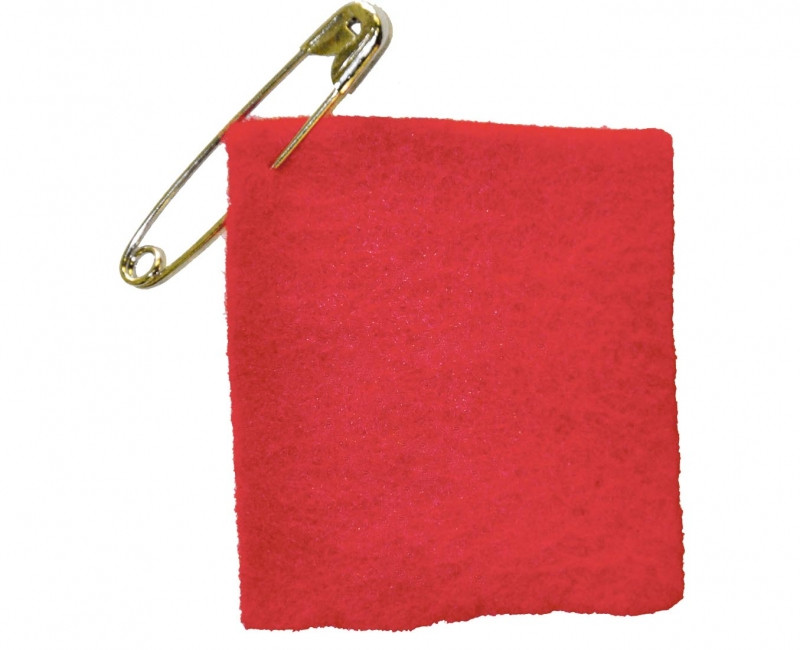

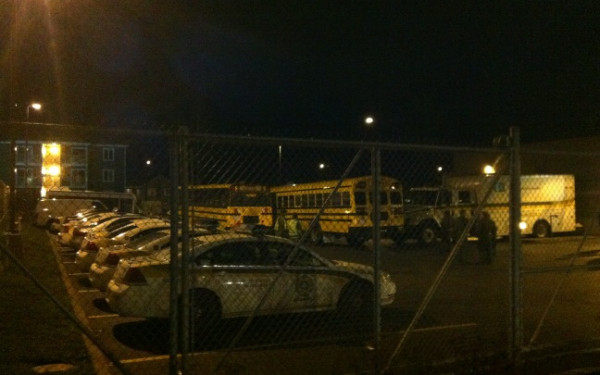
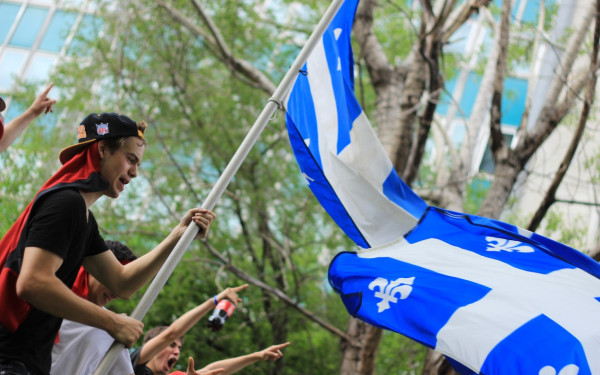
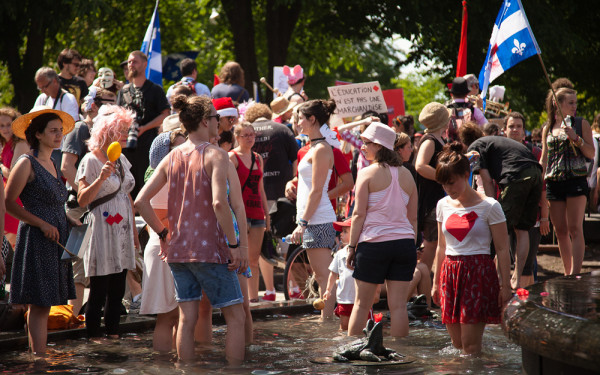
01_600_375_90_s_c1.jpg)